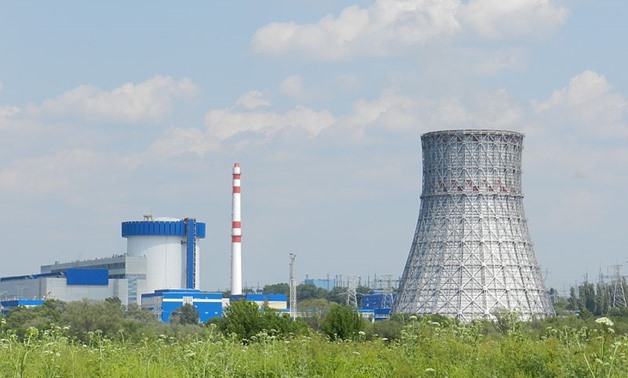
The Novovoronezh nuclear power plant (NPP) named after the 50th anniversary of the USSR is one of the first nuclear power facilities - CC via Wikimedia Commons
CAIRO - 1 July 2018: Egypt will establish the first nuclear plant in the next two to two-and-a-half years, the spokesperson of the Ministry of Electricity told Reuters on Sunday.
The spokesperson added that the nuclear power plant to be built at Dabaa by Russia with a capacity of 4,800 megawatts will be set in Matrouh governorate, northwest of Cairo, by 2026.
In September, President Abdel Fatah al-Sisi announced that Egypt had finalized the agreement with Russia to build a nuclear power plant at Dabaa, 130 kilometers northwest of Cairo in Matrouh governorate.
The 4,800 megawatt (MW) plant is set to be completed within seven years and is expected to not only cover the country’s energy needs, but also produce an excess that can be exported. The trial operation of the plant is expected to take place in 2022.
Although talks about building a nuclear plant in Egypt have been going on since the 1980s, it was not until 2015 that serious steps have been taken to pursue the plan.
On November 19, 2015, an agreement was finally signed between Cairo and Moscow that allows Russia to build a nuclear power plant in Dabaa, with Russia extending a $25 billion loan to Egypt to cover the cost of construction. The loan will cover 85 percent of the plant, with Egypt funding the remaining 15 percent.
According to the deal, Russian nuclear firm Rosatom will finance and construct four third-generation reactors, with a capacity of 1,200 megawatts (MW) each, for a total of 4,800 MW. The plant will be built on approximately 12,000 feddans and is expected to create over 50,000 job opportunities.
On November 27 of the same year, Egypt’s Parliament approved three laws, which allow for the creation of three regulatory bodies on nuclear power. The laws are believed to help revive Egypt’s program for the use of nuclear power for peaceful purposes, which began in the mid-1980s but came to a halt after the tragic explosion of the Chernobyl reactor in Ukraine in 1986.
Nuclear energy is part of the government’s plan to diversify its energy sources to prevent any future crisis resulting from shortages in electricity.


Comments
Leave a Comment